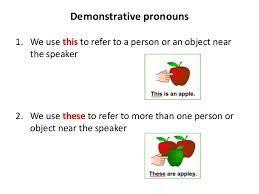记忆方法
将“demonstrative”分解为“de- + mon + stra + -tive”。想象一个“demon”在“monstrously”展示(stra-ate)某种强烈的情感或行为,使其特征明显(-tive)。这样通过将单词拆解成易于记忆的元素,可以帮助记住其表示“表现性的、直白的”含义。
以上内容由AI生成, 仅供参考和借鉴
英语词源
- demonstrative (adj.)
- late 14c., "characterized by logic, based on logic," from Old French démonstratif (14c.), from Latin demonstrativus "pointing out, demonstrating," from past participle stem of demonstrare (see demonstration). Grammatical sense, "pointing out the thing referred to," is mid-15c. Meaning "given to outward expressions of feelings" is from 1819. Demonstrative pronoun is late 16c.
权威例句
- 1. Some people are more demonstrative than others.
- 有些人更容易流露感情。
- 2. These figures are demonstrative of our progress.
- 这些数字表明了我们的进步.
- 3. He greeted us in a demonstrative manner.
- 他热情地和我们打招呼.
- 4. We came from the English tradition of not being demonstrative.
- 我们继承了英国人轻易不表露感情的传统。
- 5. Of love it may be said, the less earthly the less demonstrative.
- 关于爱,我们可以说, 越纯洁越含蓄.
